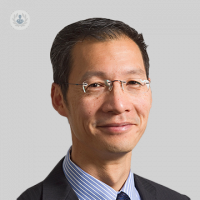The cognitive impact of COVID-19
Written in association with:A significant proportion of people with long covid have neurological problems including headache, autonomic dysfunction and peripheral nerve symptoms. However, the most prominent of all is cognitive impairment, referred to colloquially as “brain fog”.

In this latest article with Dr Dennis Chan, we discuss the evaluation of cognitive impairment in long Covid. Dr Chan leads the £1.3 million national research project studying then treating “cognitive Covid” named CICERO (see the NIHR website for more details).
How much does COVID-19 affect cognitive function?
There is increasing evidence that cognition is affected in the majority of people with long covid, with some studies suggesting 80% of people are affected. The main aspects of cognitive function affected are: attention, speed of information processing, executive function (organisational ability, decision making, planning) and memory. The resulting problems can impact heavily on everyday life, including the ability to return to normal working.
Why might COVID-19 affect cognitive function?
The SARS-CoV-2 virus can attack the brain in a number of ways, leading to cognitive impairment. First, the virus can travel directly into the brain along neural pathways, such as those originating in the nose. Second, viral infection results in downstream inflammation and also damage to blood vessels, both of which can cause brain dysfunction. Finally, it is possible (though yet to be established) that a COVID-19 infection may increase the risk of developing dementia in later life.
How can cognitive problems in long Covid be treated?
Cognitive problems often co-exist with other long covid symptoms such as fatigue, poor sleep, anxiety and depression. While fatigue can be hard to treat, the other symptoms can respond to drug treatment and if they improve then cognition can improve too. Beyond that, my team and I are looking at the possibility that neuropsychology-based rehabilitation may also help a return to normal function, and this is something that will be assessed in our CICERO study.
For more information on COVID-19 and its impact on our cognitive health, you may like to get in contact with the highly regarded neurologist, Dr Dennis Chan. Click here to visit his Top Doctors profile today.


